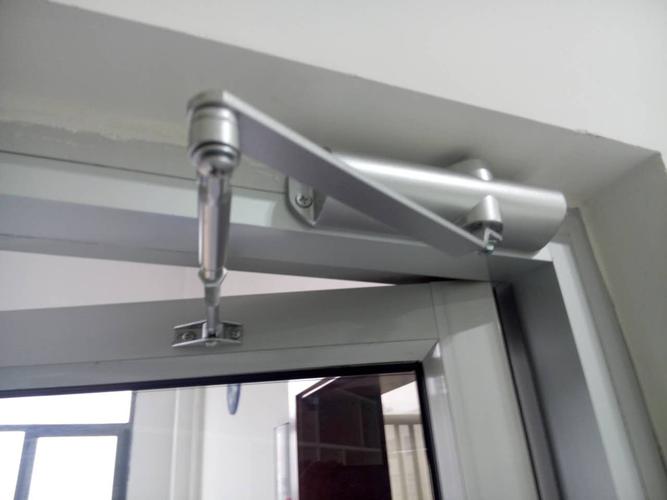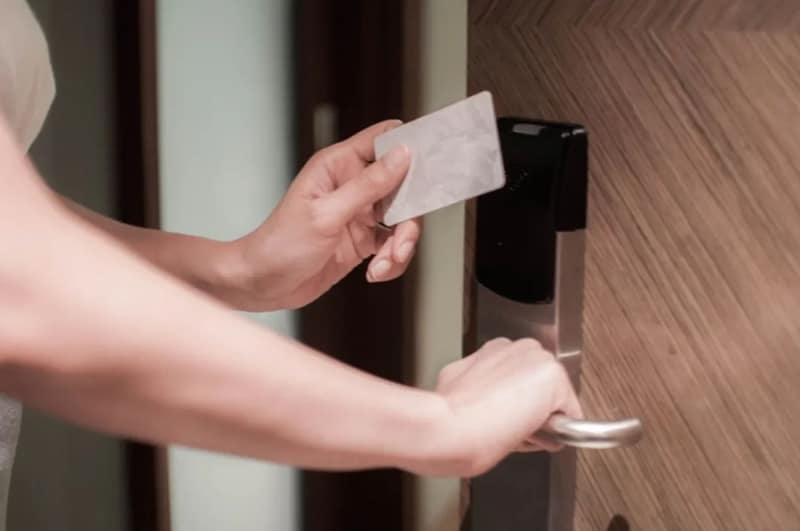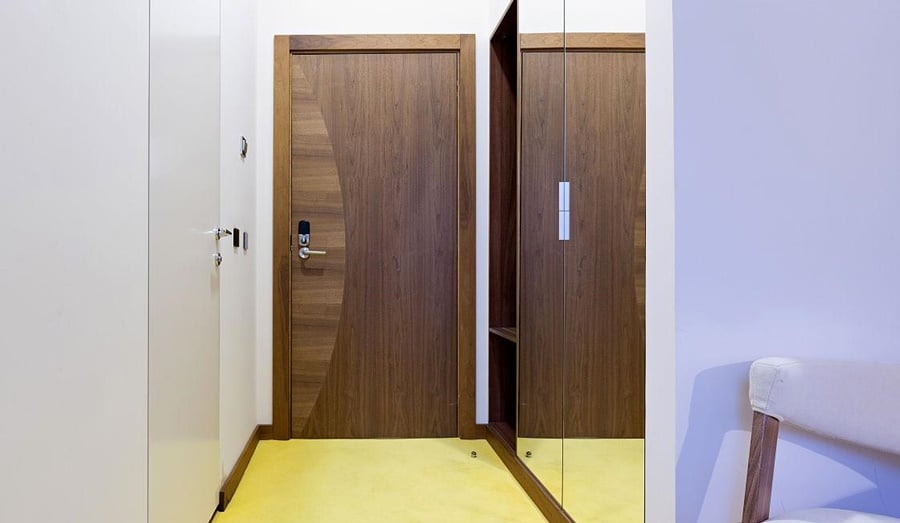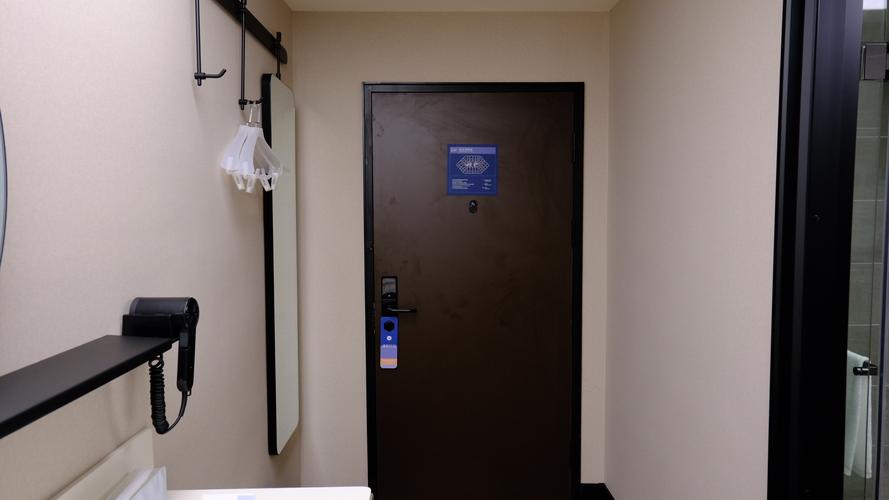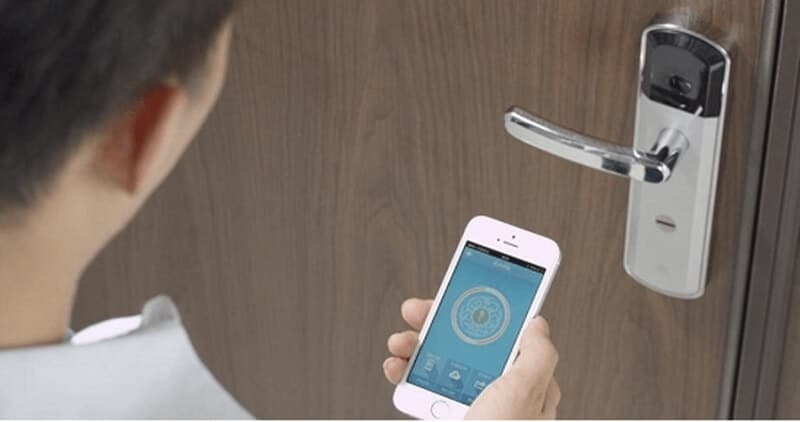Do Hotel Doors Lock Automatically? Understanding Hotel Door Security
Introduction
The locking mechanism of hotel doors has evolved over the years, with technological advancements and heightened security concerns. The methods have changed from traditional keys to electronic key cards, but the objective remains: to ensure the guest’s safety.
But one question that often arises, especially with the newer electronic systems, is: Do these hotel doors lock automatically once shut?
Simple Answer: In modern hotels, the automatic closing of doors is a standard feature. This feature not only ensures the safety and security of guests but also aids in energy conservation and noise reduction.
This article explores whether hotel doors lock automatically in depth, shedding why hotel door locks will lock automatically light on the intricacies of hotel door-locking systems.
How do hotel doors lock automatically?
The two most basic components to lock the door automatically are door closer and Automatic locking systems.
Hotel Door Closer
1. The Role of Door Closers in Ensuring Doors Shut Automatically:
- Door Closers are mechanical devices installed at the doors’ top, side, or bottom. They use hydraulic or pneumatic mechanisms to control the door’s motion, ensuring it closes automatically.
- Types of Door Closers: There are various types, including surface-mounted, concealed in-frame, concealed in-door, and concealed in-floor. The choice depends on the door’s design and the aesthetic preferences of the hotel.
- Functionality: When a door is opened, energy is stored in the door closer’s hydraulic or pneumatic mechanism. As the door is released, this stored energy is used to close the door in a controlled manner.
2. The Time Frame: Doors Close After Being Left Open for More Than 15 Seconds:
- Adjustable Speed: Most door closers allow for speed adjustment. This means the closing speed can be set to ensure the door shuts fully after a specific time frame, often within 15 seconds of being left open.
- Safety Considerations: A controlled closing speed ensures the door doesn’t slam shut, which could lead to injuries or damage.
3. Exceptions: Holding the Door or Placing an Object to Jam It Open:
- Manual Override: In some situations, guests might want to keep the door open, for instance, when moving luggage in and out. In such cases, door stoppers or wedges can temporarily override the automatic closing.
- Potential Risks: While it might be convenient to jam a door open, it’s essential to remember the security risks associated with leaving a hotel room door open and unattended. Ensuring the door is closed and locked when unoccupied is always advisable.
Automatic Locking Systems
1. Electronic Locking Mechanisms:
- Key Card Systems: One of the most common automatic locking systems in hotels is the electronic key card system. Once the door is closed, the locking mechanism engages automatically. To re-enter, guests must use their assigned key card.
- RFID hotel lock Systems: Like key card systems, Radio Frequency Identification (RFID) systems use cards or fobs that communicate with the lock via radio waves. The door locks automatically upon closing and requires the RFID key card or fob for re-entry.
- Smart Locks: Some modern hotels are adopting smart mobile hotel locks that can be controlled via smartphones or other devices. These locks often engage automatically once the door is shut.
2. Mechanical Auto-Locking:
- Deadbolt Engagement: Some doors are equipped with automatic deadbolts that extend into the door frame once the door is closed, ensuring it’s locked. This type of lock often requires a physical key or a turn of the handle from the inside to unlock.
3. Locking from the Inside as Soon as the Door is Closed:
- Privacy Locks: Many hotel doors have an additional privacy lock or latch. While the primary lock may engage automatically, the privacy lock must be manually set from the inside, offering an extra layer of security.
The door closer and electronic locking system work together to ensure that the hotel door can be automatically locked.
In conclusion, while automatic locking systems in hotels offer enhanced security and convenience, it’s essential to be aware of potential issues. Regular maintenance, timely upgrades, and user awareness can ensure these systems function optimally, providing guests with a safe and secure environment.
Manual vs. Automatic Locking Systems in Hotels
In the hotel industry, the choice between manual and automatic locking systems is influenced by various factors, including security, convenience, and reliability. This section compares these two types of systems and discusses scenarios where one might be more advantageous.
- Security Considerations:
- Manual Locks: Traditional manual locks, such as deadbolts or key-operated locks, offer a basic level of security. They are less susceptible to electronic tampering but vulnerable to physical lock-picking techniques.
- Automatic Locks: These locks typically provide enhanced security features. They are more resistant to traditional lock-picking but can be vulnerable to sophisticated hacking methods, although such instances are relatively rare.
- Convenience for Guests and Hotel Staff:
- Ease of Use: Automatic locks offer greater convenience, especially for guests carrying luggage, with features like key cards or mobile access. Manual locks require physical keys, which can be less convenient and pose the risk of being lost.
- Management Efficiency: From a hotel management perspective, automatic locks are easier to manage. They can be quickly reprogrammed for new guests, whereas manual locks may require physical key changes.
- Reliability and Maintenance:
- Power Dependency: Automatic locks rely on power sources, which can be a point of failure. However, most modern systems have battery backups.
- Wear and Tear: Manual locks can be more durable over time, with fewer mechanical parts that require maintenance. Automatic locks, while robust, may require more frequent technical maintenance.
- Real-Life Application Scenarios:
- High-Traffic Hotels: Automatic locks can significantly streamline check-in and check-out in busy hotels with high guest turnover.
- Boutique or Historic Hotels: Manual locks might be preferred for their classic appearance and simplicity in settings where aesthetics and tradition are important.
- Emergency Situations: In emergencies like power outages, manual locks offer the advantage of being fully operational without power, whereas automatic locks might rely on backup systems.
- Cost Implications:
- Initial Installation and Long-Term Maintenance: Automatic systems generally have a higher initial cost and may require more sophisticated maintenance, whereas manual systems are less expensive to install and maintain.
- Guest Preference and Perception:
- Perceived Security: Some guests may feel more secure with high-tech automatic systems, while others might prefer the tangibility and familiarity of manual locks.
- Technological Comfort: The choice may also depend on the demographic of the hotel’s clientele, with tech-savvy guests likely preferring automatic systems.
In summary, manual and automatic locking systems have unique advantages and potential drawbacks. Their choice depends on a hotel’s needs, guest preferences, and operational considerations. The next sections will provide insights into what guests need to know about these systems and the advanced security features accompanying modern hotel door locks.
Breaking into Auto Locking Hotel Rooms: Is It Easy?
Although almost all hotel room doors lock automatically, the security of hotel rooms is a topic of concern for both hoteliers and guests. So, is it easy to break into an autolocking hotel room?
Common Methods Used by Intruders:
- Picking Locks with Simple Tools: Traditional key locks can sometimes be picked using simple tools like hairpins, tension wrenches, or specially designed lock picks. The aim is to manipulate the pins inside the lock to align correctly, allowing it to turn and open. Older hotels or outdated locking systems might be more susceptible to this method.
- Videos and Tutorials Available Online: Intruders can easily access these tutorials to learn techniques. These can range from picking traditional locks to bypassing electronic key card systems or exploiting vulnerabilities in smart locks.
- Fake or Stolen Key Cards: Intruders can sometimes acquire duplicate key cards or use devices to clone them. Sometimes, lost or stolen key cards can be used for unauthorized access.
Preventive Measures:
- Not Leaving Valuables in Plain Sight: Intruders are often motivated by theft. If they peer into a room and see valuables like laptops, jewelry, or cash in plain sight, it might incentivize them to break in. Please use the hotel safe to store valuables or keep them out of view. If there’s no safe, consider storing important items in less obvious places.
- Being Aware of Surroundings: Awareness can deter potential intruders. They’re less likely to attempt a break-in if they believe they’re being watched or their actions are noticeable. If you see suspicious individuals loitering near rooms or in hallways, report it to hotel security.
- Use Additional Locks: Additional locks, like deadbolts or security chains, provide an extra layer of security. Engage all available locks when inside the room. Consider traveling with a portable door lock or door jammer for added security.
In conclusion, while no security system is entirely foolproof, awareness and preventive measures can significantly reduce the risk of unauthorized access. Both hoteliers and guests play a role in ensuring the safety and security of hotel rooms.
Conclusion
As we’ve explored, many modern hotels have incorporated automatic locking systems to enhance guest safety and convenience. These systems, ranging from electronic key card mechanisms to RFID systems, are designed to provide an added layer of security by ensuring that once a door is closed, it’s locked.
However, while technology offers increased security, it’s essential to remember the human element. Guests should always be vigilant, double-checking doors and using additional security measures when available. On the other hand, hoteliers are responsible for maintaining these systems, ensuring they function optimally, and updating them as needed.

